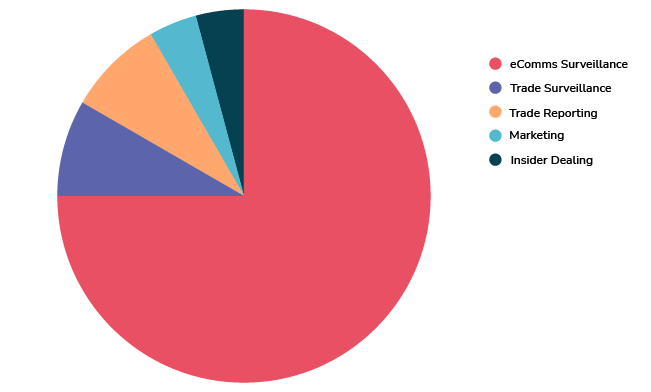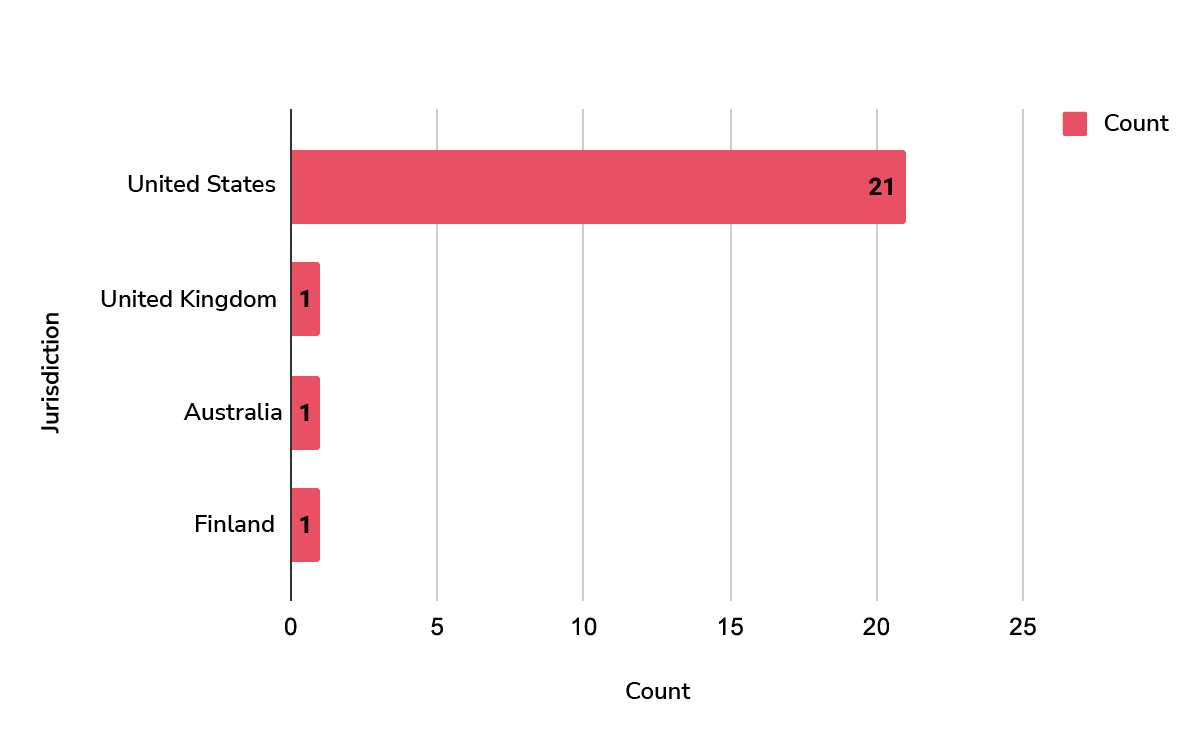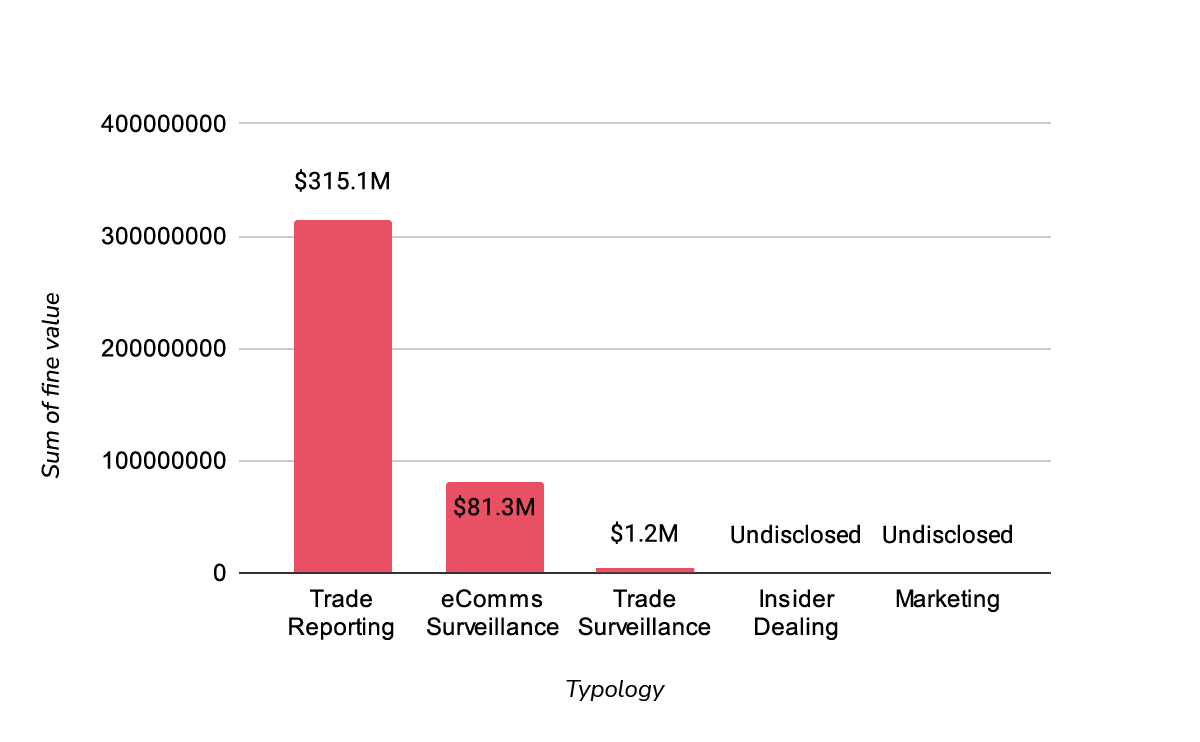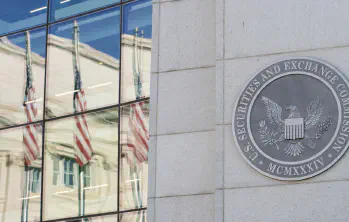Enforcements update: almost $400 million dished out in fines in the first two months of 2024
On February 13th 2024, eflow launched an extensive research-based report exploring global market abuse trends, including quantitative analysis on market abuse enforcement from 2019-2023 across eight jurisdictions. This shed valuable insight on the challenges that firms are facing, and the key areas of focus for regulators.
This piece is eflow’s latest update on global market abuse enforcements, providing an overview of the busy start to 2024 which has hit broker-dealers, investment advisers, pension providers and major investment banks alike.
In the first two months of 2024, we saw 24 market conduct enforcements:

These enforcements were across four jurisdictions:

They totalled $397.6 million

These numbers tell their own story. There is clearly a continuous regulatory drive to clean up market conduct, led by the US with a sharp focus on eComms Surveillance and a heavy hand for failures in trade reporting.
The following sections provide details on the key enforcements that you should know about.
Trade reporting
Trade and transaction reporting represent a complex set of obligations that many firms have struggled to fully implement. Their importance is not up for debate however, as accurate and timely trade reporting forms the basis from which fundamental risks such as market abuse can be monitored and mitigated.
The most substantial fine so far in 2024 was issued for lapses in trade reporting. Specifically, JP Morgan Chase and Co is set to pay ~$350 million civil penalty for failing to feed certain trade and order data to its internal trade surveillance platforms. These surveillance platforms are a critical piece of the puzzle, used to ensure the integrity of markets, monitor for fraudulent activities, ensure regulatory compliance and, ultimately, protect the interests of investors. Any related reporting deficiencies, whether it be incomplete, missing or incorrect data, significantly diminishes the efficacy of firms’ surveillance algorithms.
The firm has undertaken corrective actions, which involve improvements to both the inventory management and the data accuracy controls within its Corporate and Investment Banking division. Additionally, as a condition of the anticipated agreements with the two regulatory bodies, the firm has indicated it will be required to “complete its remediation, engage an independent consultant, and pay aggregate civil penalties of approximately $350 million.”
Trade surveillance
The start of 2024 saw regulators uncover two notable instances in which institutions did not have appropriate procedures and/or technology in place for analysts to identify suspicious trade activity.
Online broker, TradeStation, failed to reasonably escalate suspicious customer trading activity flagged by their automated surveillance system due to inadequate procedures for analysts reviewing the alerts. Certain examples of potentially suspicious activity were said to have slipped through the cracks as a result; these include a customer involved in potential pump-and-dump schemes and an institutional customer with significant alerts for wash trades and layering.
Goldman Sachs, on the other hand, was found to have had more fundamental gaps in their surveillance technology, with circa 5,000 alerts for potentially manipulative trading going undetected between 2009 and 2023. During this time, Goldman failed to include warrants, rights, units, and certain over-the-counter (OTC) equity securities in automated surveillance reports used to detect potentially manipulative trading by the firm and its customers.
eComms surveillance
2022 and 2023 were record-breaking years for all the wrong reasons, with regulators issuing north of $2.6bn in financial sanctions to a host of banks - including some of Wall Street’s biggest - for widespread use of private messaging, or “off-channel” communications. At the end of 2022, Chair of the U.S. Securities and Exchange Commission, Gary Gensler, made it clear that the regulator was just getting started in its punishment of recordkeeping violations.
The latest swathe of penalties demonstrate the supervisors unwavering intent to pursue and penalise institutions who fail to monitor business-related communications. At the beginning of February, the SEC ordered sixteen firms to pay more than $81 million combined to settle charges for widespread recordkeeping failures.
The SEC’s probe uncovered pervasive and longstanding uses of unapproved communications (from at least 2019 or 2020) across five broker-dealers, seven dually registered broker-dealers and investment advisers and five affiliated investment advisers. Importantly, investigators found that employees at all levels of the organisation, including supervisors and senior managers, had sent and received off-channel communications related to recommendations made or proposed to be made.
Insider trading
At the start of 2024, the Financial Conduct Authority (FCA) delivered its first insider trading conviction since 2019. A former Goldman Sachs analyst was sentenced to 22 months in prison after being convicted of nine counts of insider dealing and fraud. The individual falsely obtained bank loans for home improvements but used these funds for 46 illegal trades under his siblings’ names, hiding the activity from Goldman Sachs. The FCA’s proactive stance is evident, with 17 ongoing insider dealing investigations, signalling the need for firms to align with regulatory standards.
The role of technology
The role of modern, specialised technologies in solving these problems is now clear to the industry, with 96% of compliance professionals planning to invest in technology. However, these enforcements point to the importance of holistic coverage, due to the knock-on effects of a single weak link.
For example, JP Morgan’s trade reporting failures meant that its trade surveillance capabilities were also compromised, as they were operating without the necessary data. Similarly, the recent wave of eComms enforcements reflect the realisation that market abuse is easier to detect when supported by contextualising communications data.
Actively tracking enforcements enables eflow to continuously innovate and shape its solutions to the present demands of the market. This involves developing solutions specifically tailored to the problems that are causing enforcement actions against firms, including the need for a comprehensive compliance suite:
TZTR Transaction Reporting
eflow’s universal transaction reporting module includes solutions for EMIR and MiFIR via a single platform. It acts as the centralised digital hub from which you can manage all aspects of your reporting strategy.
TZTS Trade Surveillance and Market Abuse
eflow’s dynamic and highly configurable trade surveillance tool is powered by machine learning and behavioural analytics to automatically monitor your trades for over 40 forms of market abuse.
TZEC eComms Surveillance
eflow’s eComms surveillance system generates a comprehensive view of various communication channels, identifies potentially suspicious behaviour, and helps you to make informed, data-led decisions.
TZBE Best Execution
TZBE is eflow’s Best Execution and Transaction Cost Analysis (TCA) tool and offers your firm a configurable digital solution to comply with these requirements quickly, efficiently and accurately.
If your firm could benefit from additional expertise and tooling in navigating the regulatory landscape, book a consultation today.
Please note that the above does not constitute an exhaustive list of all regulatory enforcements across all jurisdictions, nor does it constitute legal advice. It is intended as a thorough sampling and analysis of regulatory enforcement from the world’s largest financial regulators.



